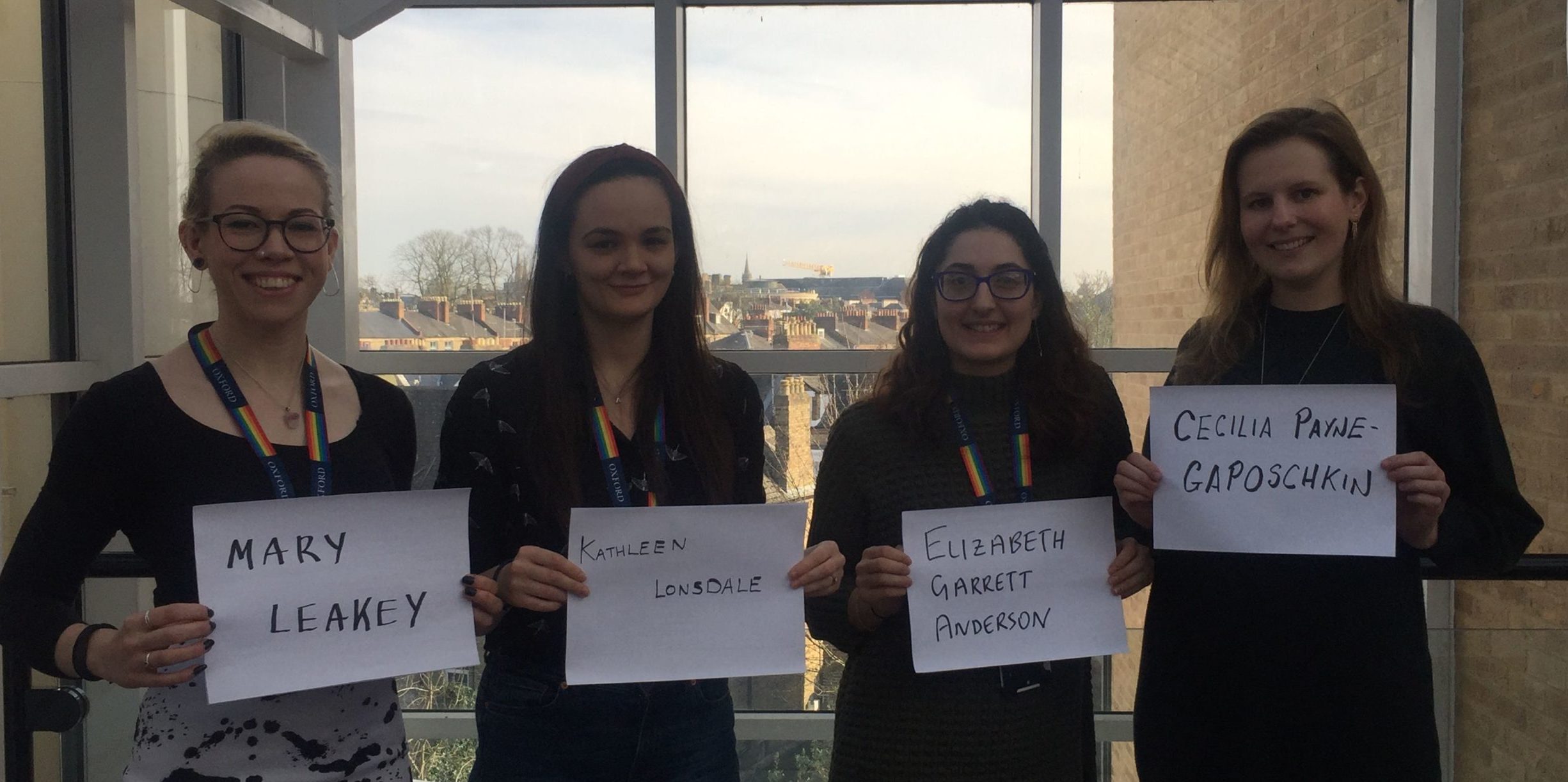11th February is International Day of Women and Girls in Science. To celebrate, Oxford staff have picked some of their favourite women in science. Let us know yours in the comments!
 Science Editor Mélanie chose Elizabeth Garrett Anderson. Mélanie says, “she was the first woman to be awarded a licence to practise medicine in Britain, however she later went to La Sorbonne in Paris to get a formal medical degree. She went on to co-found the London School of Medicine for Women with Sophia Jex-Blake (who was at the forefront of the movement to allow women into universities) and Elizabeth Blackwell (the first woman to qualify for a medical degree in the US).”
Science Editor Mélanie chose Elizabeth Garrett Anderson. Mélanie says, “she was the first woman to be awarded a licence to practise medicine in Britain, however she later went to La Sorbonne in Paris to get a formal medical degree. She went on to co-found the London School of Medicine for Women with Sophia Jex-Blake (who was at the forefront of the movement to allow women into universities) and Elizabeth Blackwell (the first woman to qualify for a medical degree in the US).”
 Science Editor Guy says, “Margaret Oakley Dayhoff is my favourite – the founder of bioinformatics and computational biology, and staggeringly smart! She needs more recognition.”
Science Editor Guy says, “Margaret Oakley Dayhoff is my favourite – the founder of bioinformatics and computational biology, and staggeringly smart! She needs more recognition.”
 Senior ELT Editor Jo has chosen Jocelyn Bell Burnell. Jo says, “I’d like to nominate Professor Dame Jocelyn Bell Burnell for her discovery of pulsars, which is thought to be one of the most important astronomical discoveries of the twentieth century. I first heard of Dame Jocelyn’s discovery while editing the manuscript for a new ELT secondary title, Oxford Discover Futures, which features Dame Jocelyn’s discovery in one of the reading texts.”
Senior ELT Editor Jo has chosen Jocelyn Bell Burnell. Jo says, “I’d like to nominate Professor Dame Jocelyn Bell Burnell for her discovery of pulsars, which is thought to be one of the most important astronomical discoveries of the twentieth century. I first heard of Dame Jocelyn’s discovery while editing the manuscript for a new ELT secondary title, Oxford Discover Futures, which features Dame Jocelyn’s discovery in one of the reading texts.”
Science Editor Claire says, “Cecilia Payne-Gaposchkin was an astronomer that studied at Cambridge in the 1920s, but was never awarded a degree from them because she was a woman. She then moved to Harvard University and studied astronomy for her PhD. In 1925, she became the first person to discover that stars (and the sun) are composed of hydrogen and helium, and her thesis was described as: “undoubtedly the most brilliant PhD thesis ever written in astronomy”. Despite this, her colleagues didn’t believe her until a few years later when a male astronomer reached the same conclusion.”
 Science Development Editor Harrie chose Mary Leakey. Harrie says, “Mary was one of the most notable palaeoanthropologists to have lived. Born in London, she was expelled from several schools and never attended University, but moved to Kenya to prospect and excavate ancient humanoid (hominin) fossil sites with her husband. She worked as a researcher in palaeoanthropology until her death, having significantly progressed the field during her lifetime.
Science Development Editor Harrie chose Mary Leakey. Harrie says, “Mary was one of the most notable palaeoanthropologists to have lived. Born in London, she was expelled from several schools and never attended University, but moved to Kenya to prospect and excavate ancient humanoid (hominin) fossil sites with her husband. She worked as a researcher in palaeoanthropology until her death, having significantly progressed the field during her lifetime.
She raised three children in Kenya, one of whom also became a celebrated palaeoanthropologist and conservationist. Her heritage is continued in her granddaughter, Louise, who also works as a palaeontologist in Kenya, and has made some of the most important recent discoveries in the field. Mary’s dedication to a life in palaeoanthropology thereby began one of the most prolific family legacies in science.”
Science Editor Ashleigh chose Kathleen Lonsdale. Ashleigh says, “Kathleen Lonsdale was an Irish crystallographer who, in 1929, used X-ray diffraction to prove that the benzene ring is flat and has bonds of equal length. This disproved the previous model by Kekulé that suggested that benzene was made up of alternate single and double bonds. She was the first woman tenured professor at University College London, the first woman president of the International Union of Crystallography and the first woman president of the British Association for the Advancement of Science. As well as being a scientist, she was also a committed pacifist and a prison reform activist”.
 Marketing Manager Fi says, “I find Katherine Johnson’s ability to perform such complex calculations in her head absolutely phenomenal. Our explorations into space would be nothing without the contribution she made. ”
Marketing Manager Fi says, “I find Katherine Johnson’s ability to perform such complex calculations in her head absolutely phenomenal. Our explorations into space would be nothing without the contribution she made. ”
 STEM Editorial Project Manager Sadie chose Ida Freund. She says, “Ida was the first female chemistry lecturer in the UK, was passionate about the education of girls and women in science, and was also the first person to make a Periodic Table out of cupcakes!”
STEM Editorial Project Manager Sadie chose Ida Freund. She says, “Ida was the first female chemistry lecturer in the UK, was passionate about the education of girls and women in science, and was also the first person to make a Periodic Table out of cupcakes!”
At Oxford University Press, we publish science teaching and learning resources for use across the world. We’re currently working with the OECD to develop the Science Framework for PISA 2024. PISA evaluates education systems worldwide, and we’re excited to align it to OUP’s global educational expertise. Find out more.


